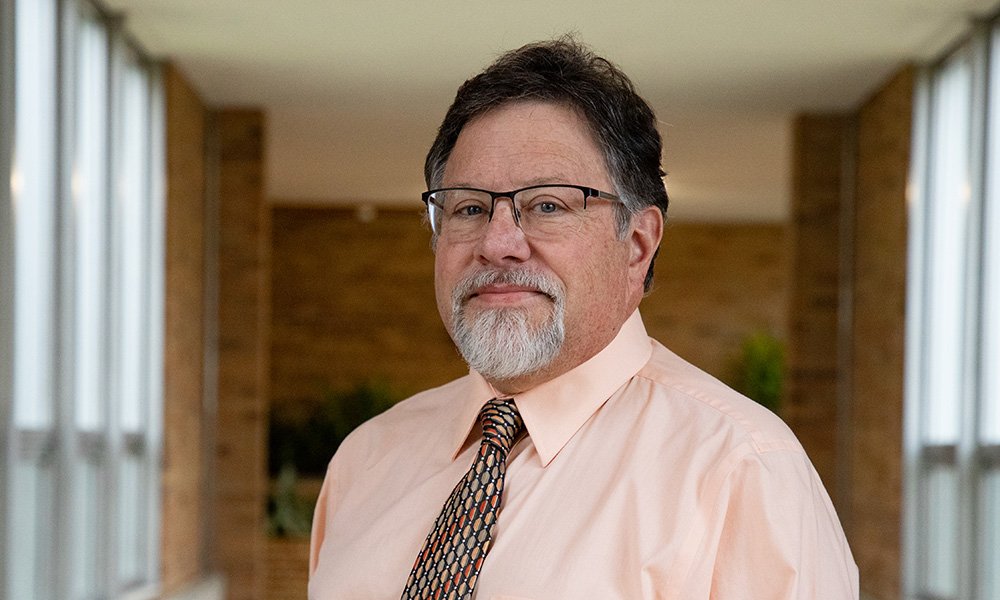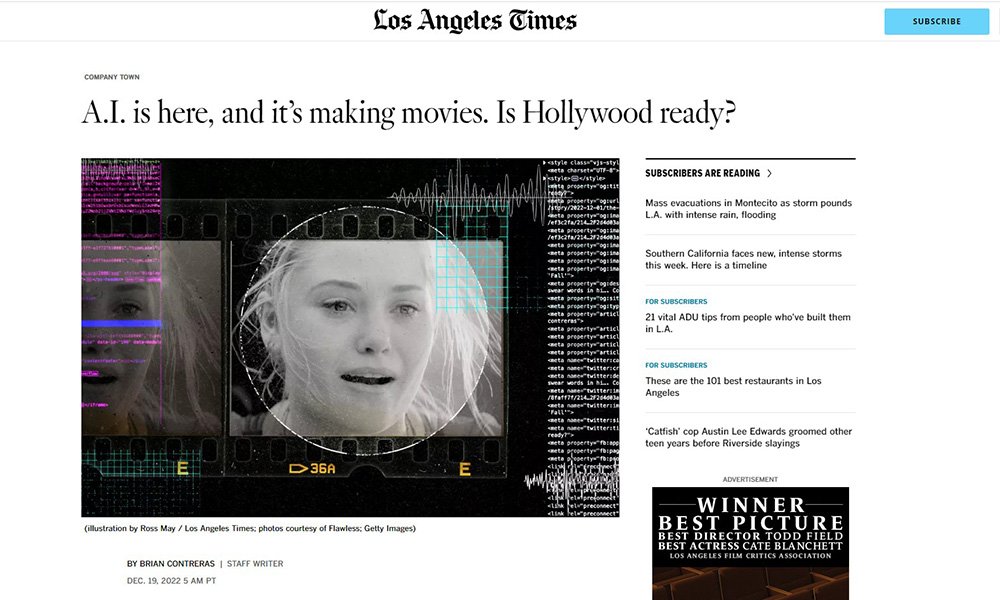
As Artificial Intelligence becomes more accessible, questions about its potential to deceive become more relevant. CUW’s Dr. Robert Wahl, who has published a paper on the subject, recently shared some thoughts with the L.A. Times.
AI—or “Artificial Intelligence”—has been in the news a lot lately. From apps like ChatGPT that can write articles to cars that can drive themselves, the potential applications are virtually endless. And sometimes a little scary.
As with almost any new technology, it also raises potential ethical concerns. As it becomes ever more difficult to distinguishing between content made through artificial intelligence and that created by God-given human ability, artists and content creators must ask themselves at what point enhancing reality crosses the line into deception. Readers and viewers, as well, must become more discerning, lest they become victims of manipulation and misinformation.
AI goes Hollywood

One area where AI technology has really taken hold is in the movies. Already in wide use is “de-aging” technology, which allows actors to essentially play younger versions of themselves.
Late last year, Associate Professor of Computer Science Dr. Robert Wahl, who has written on the ethics of such technology in media, was contacted by a reporter at the Los Angeles Times to comment on the subject. Below are a few excerpts from what he told the reporter.
Q: What are some of the ethical concerns raised by AI technology in the movie-making business?
Recent technology has allowed the re-creation of believable characters, such as Peter Cushing as Grand Moff Tarkin in Rogue One and the re-creation of Carrie Fisher as Princess Leia in Star Wars: The Rise of Skywalker. It is important to note that in both cases permission was given by family members for the re-creations.
While it would be nice if the software was used in controlled settings and used only by a few industry professionals, it is becoming evident that the software will follow the trend of most software, and that the prices will come down, technology will improve, ease of use will improve, and it will become available to the masses. Just [recently] the Disney Corporation released a new software product known as Fran that allows for images of actors to be aged or de-aged in a matter of seconds, so the tech is rapidly evolving. “Deepfake” technology will likely follow this same pattern.
Q: What are some of the wider societal implications of this technology (along the lines of the mainstreaming of high-quality deepfakes)?
One of the challenges with these technologies is that as the technology becomes more widely available and simpler to use, more people can take advantage of it for good or bad purposes.
Photoshop and other similar photo editing tools have put the power of powerful editing software into the hands of the average user to the point that we can no longer fully trust what we see in an image. With artificial intelligence and Deepfake technology, we will see the same thing happen for editing films. Software already exists that can alter an actor’s physique by increasing their height or muscle mass dynamically. We can no longer take what we see on the screen at face value.
Q: What are some ways this sort of technology can be approached/developed safely—legally, culturally, or otherwise?
The safe and fair way to implement this emerging technology is by getting consent from the people involved (actors) to use this technology rather than doing it without permission. If everyone agrees to use this new technology problems will be minimized. Since it may be easier to use the software rather than doing a re-shoot, and if the end result is just as good, problems can be avoided. Only when the software is used without permission, does it become an ethical/legal problem.
Thank you, Bob, for sharing your expertise with such a widely read publication. To read the full L.A. Times article in which Dr. Wahl is quoted, click here. Wahl’s paper, “The Ethical Implications of CGI in Media,” presented at the 83rd Annual Meeting of the Association of Lutheran College Faculties (ALCF) in 2019, can be read here.
Want in?
We are in a world where almost everything we do involves computers, and that isn’t changing anytime soon. Technology, advancement, and innovation surround us and it’s a smart, always evolving field to get involved in.
At Concordia University, you become part of a genuine community of learning; a place where your faith and your intellect intertwine; where you are uniquely developed to achieve your fullest potential. The School of Arts and Sciences encompasses a broad range of disciplines, across 13 departments, which house more than 40 degree programs. The School also guides the experience of all Concordia undergraduate students through the Concordia Core.